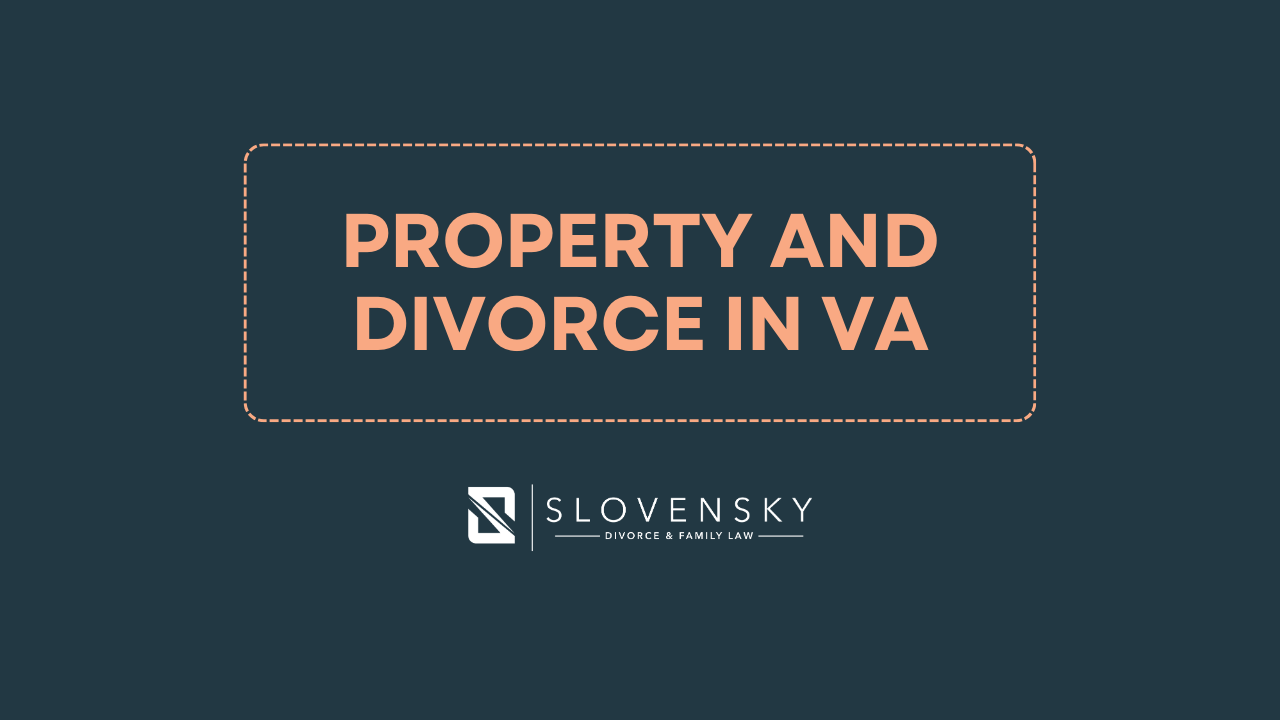Last Updated on February 8, 2024
Divorce can be a long and challenging journey, filled with emotional and legal complexities. Among the crucial yet complicated aspects of divorce is the division of property. This process can significantly impact your financial future, which is why understanding property settlement in a Virginia divorce is essential.
Knowing your options when it comes to property division can help ensure a fair resolution as well as a streamlined divorce process, thus minimizing its length and cost. There are two ways to divide property and debts in a divorce: through an agreement called a Property Settlement Agreement (“PSA”) or through a judge’s decision in a process called equitable distribution. Of course, the strength of either party’s legal case in front of a judge can affect the terms of any negotiated division of property and debts.
In this article, we will explore the basics of property division, shedding light on its significance and how consulting a legal professional on divorce matters can provide the guidance you need.
The Divorce Process in Virginia
It will be helpful to understand some basic points about the divorce process. In Virginia, divorce can be obtained under either fault or no-fault grounds. The presence of fault, or the relative degree of fault between you and your spouse, may affect the distribution of property by the Court. Here are the grounds for each:
-
No-Fault Divorce
A no-fault divorce can be obtained if the spouses have lived separately and apart without any cohabitation for a specific period of time. In Virginia, this separation period is generally one year if the couple has minor children, and six months if they do not have minor children.
-
Fault-based Divorce
The grounds for fault-based divorce include:
- Adultery: If one spouse engages in sexual intercourse with someone other than their spouse within the past 5 years, it can be considered a ground for divorce based on adultery.
- Cruelty or Reasonable Apprehension of Bodily Hurt: If one spouse engages in cruelty or causes the other spouse to have a reasonable fear of bodily harm, and they have been separated for at least a year, it can be grounds for divorce. This can include physical violence, threats, or other forms of mistreatment.
- Desertion: Desertion occurs when one spouse leaves the marital home without any justification or intent to return, and without the consent of the other spouse. A period of one year of continuous desertion is typically required to establish this ground for divorce.
- Conviction of a Felony: If a spouse is convicted of a felony and is sentenced to confinement for more than one year, it can be a ground for divorce.
- Willful Abandonment or Neglect: If one spouse willfully abandons or neglects the other spouse for at least a year, it can be ground for divorce. This usually involves a willful refusal to provide financial support or care for the other spouse.
How does a Fault-based Divorce affect property division?
A fault-based divorce can affect how property will be divided. If one partner had a romantic relationship outside of marriage, broke the law, hurt the other partner, or did something wrong, these actions will be considered by the court when deciding how to divide things fairly. Additionally, if one partner did something to make the shared belongings less valuable, the court might give the other partner more in the division of property. Financial consequences of fault-based actions can skew a property division in favor of one party or the other.
While fault grounds can impact various aspects of the divorce process, Virginia also offers the option of pursuing a no-fault divorce based on living separately and apart. This no-fault option is often chosen to avoid the need to provide evidence of fault-based actions.
How Property is Divided in a Virginia Divorce
Whether for a fault-based or no-fault divorce, the courts will only divide marital property or debts that were acquired during the marriage. Separate property, meaning property that individual spouses obtained before marriage or after separation, or gained through gift or inheritance, will belong solely to the spouse obtaining it or receiving it. However, in some cases, separate property may be transformed into marital property if it has been used to benefit the marriage, has been actively controlled by both parties during the marriage, or was shared by the spouses during the marriage.
Virginia follows the principle of equitable distribution when dividing marital property. Equitable distribution does not necessarily mean an equal 50-50 split, but rather a fair distribution considering various factors including:
- Duration of the marriage
- Contributions of each spouse to the marital property
- Age and health of both parties
- Financial circumstances and earning potential of each spouse
- Whether spousal support is awarded
- Tax consequences of the property division
- Any written agreement between the spouses regarding property distribution
- Non-monetary contributions to the family, such as homemaking and child-rearing
What is a Property Settlement Agreement?
A property settlement agreement, often referred to as a PSA, is a legally binding document that outlines the division of marital property and assets between divorcing spouses. This agreement can be reached through negotiation, mediation, or collaborative divorce processes, and it allows couples to have greater control over their property division instead of leaving it to the court’s decision.
A PSA can cover all the main parts of your divorce, such as:
- How you split your jointly-owned assets and debts
- Arrangements for looking after your kids (child custody)
- Money to help with child care (child support)
- Money for the spouse (also called alimony)
There’s no rule about how many details your PSA can have. You can get into details within these points that the court might not. This means you can make your PSA fit your own unique situation.
A PSA also need not be formal, but it will still work just like a proper legal agreement. The court will respect the document unless it was made under duress or fraud. The property settlement agreement can also be canceled if the conditions in it appear very one-sided.
Take note that although your signed PSA is a contract that the law recognizes, it doesn’t complete your divorce process. This means you’re still married, and any new romantic relationships you have after signing a PSA might be seen as cheating during the divorce (unless the PSA covers this topic). Only the court can finalize your divorce officially. When that happens, the terms in your PSA can become part of the official divorce order and can be enforced by the court. Before that, they’re only legally enforceable as a contract.
Benefits of Creating a Property Settlement Agreement
Opting for a property settlement agreement offers several advantages:
Control and Flexibility
By crafting your own agreement, you and your spouse have control over the outcome instead of letting the courts decide, which can be unfavorable to either or both of you. This ensures that the agreement aligns with your priorities and unique circumstances.
Time and Cost Savings
A well-prepared property settlement agreement can expedite the divorce process, saving both time and legal expenses. The usual divorce process can take months, but with a PSA issues can be settled as quickly as a day after your separation. The PSA eliminates the need for lengthy court proceedings and reduces the associated costs.
Minimized Conflict
Collaboratively working on a property settlement agreement can foster communication and cooperation, minimizing the adversarial nature of divorce.
Do You Need a Property Settlement Agreement?
If you don’t have shared belongings, debts together, or children, you might not be required to have a marital separation agreement for a no-fault divorce. However, if you wish to plan for the future arrangement of your relationship and offer extra proof to the court about when you separated, having a Marital Settlement Agreement is a good idea. This agreement removes any uncertainty about how your marriage ended. It’s smarter to have a well-written agreement instead of depending on spoken agreements.
While not mandatory, a property settlement agreement is highly recommended, especially when aiming for a smoother and less contentious divorce process. This agreement provides a framework for property distribution that is fair and mutually agreeable.
If you need trusted and reliable advice and assistance navigating property settlement in a Virginia divorce, turn to Slovensky Law. Slovensky Law stands as a trusted authority on divorce matters, ready to provide you with expert advice and support throughout the property settlement process.
If you’re considering divorce or are in the midst of one, give us a call at Slovensky Law. Our team is dedicated to helping you achieve a fair property settlement and a successful transition to the next chapter of your life.




